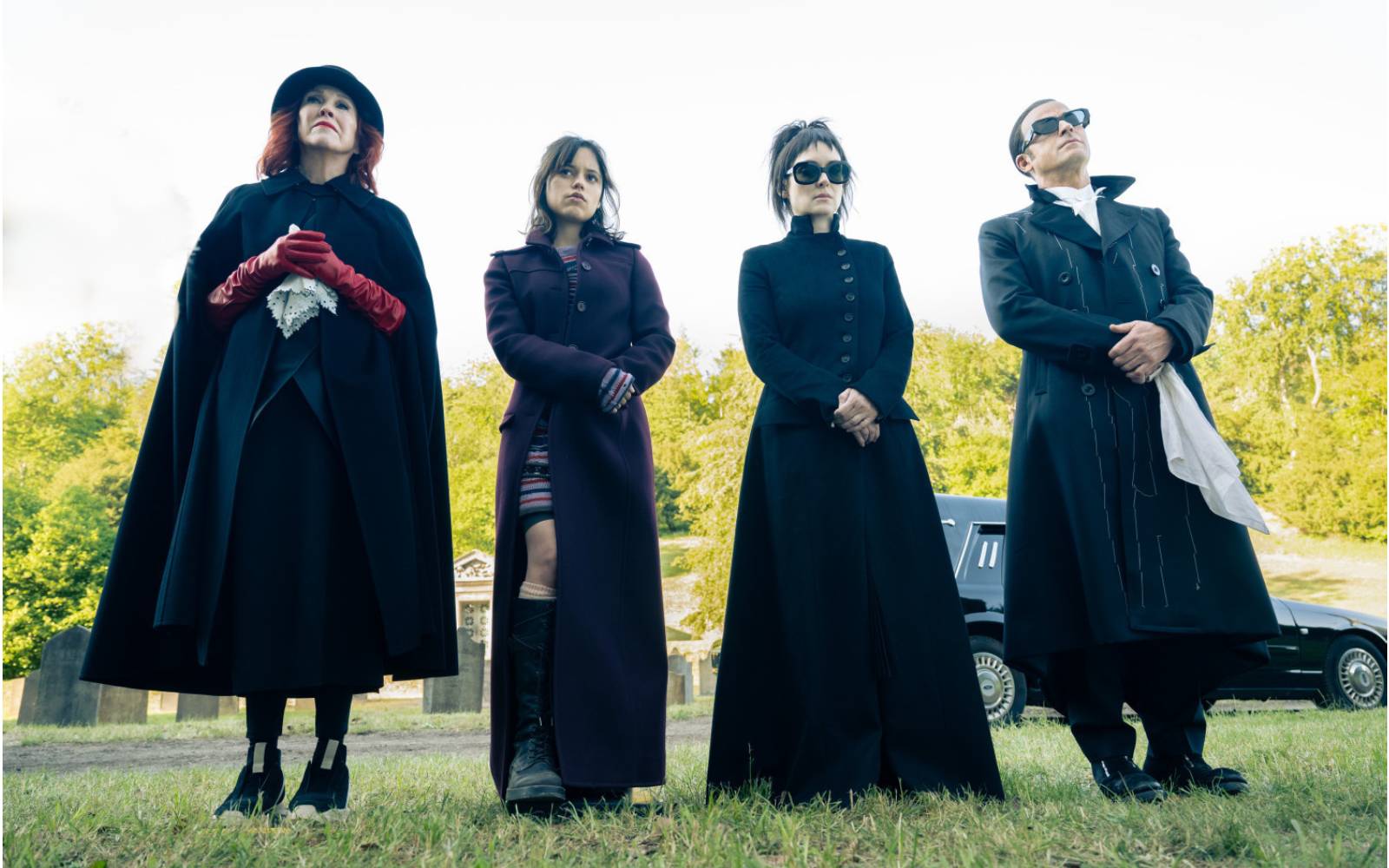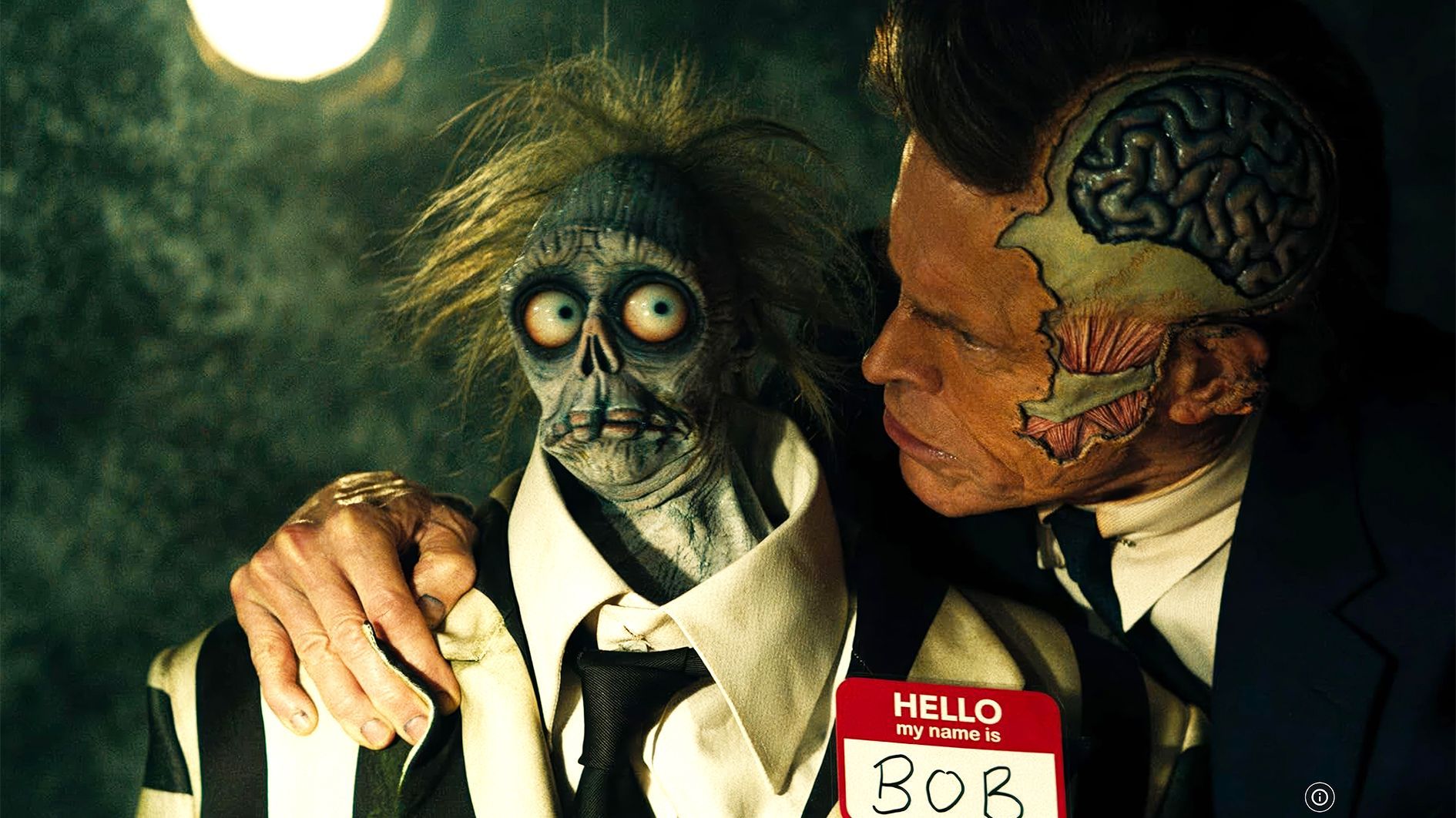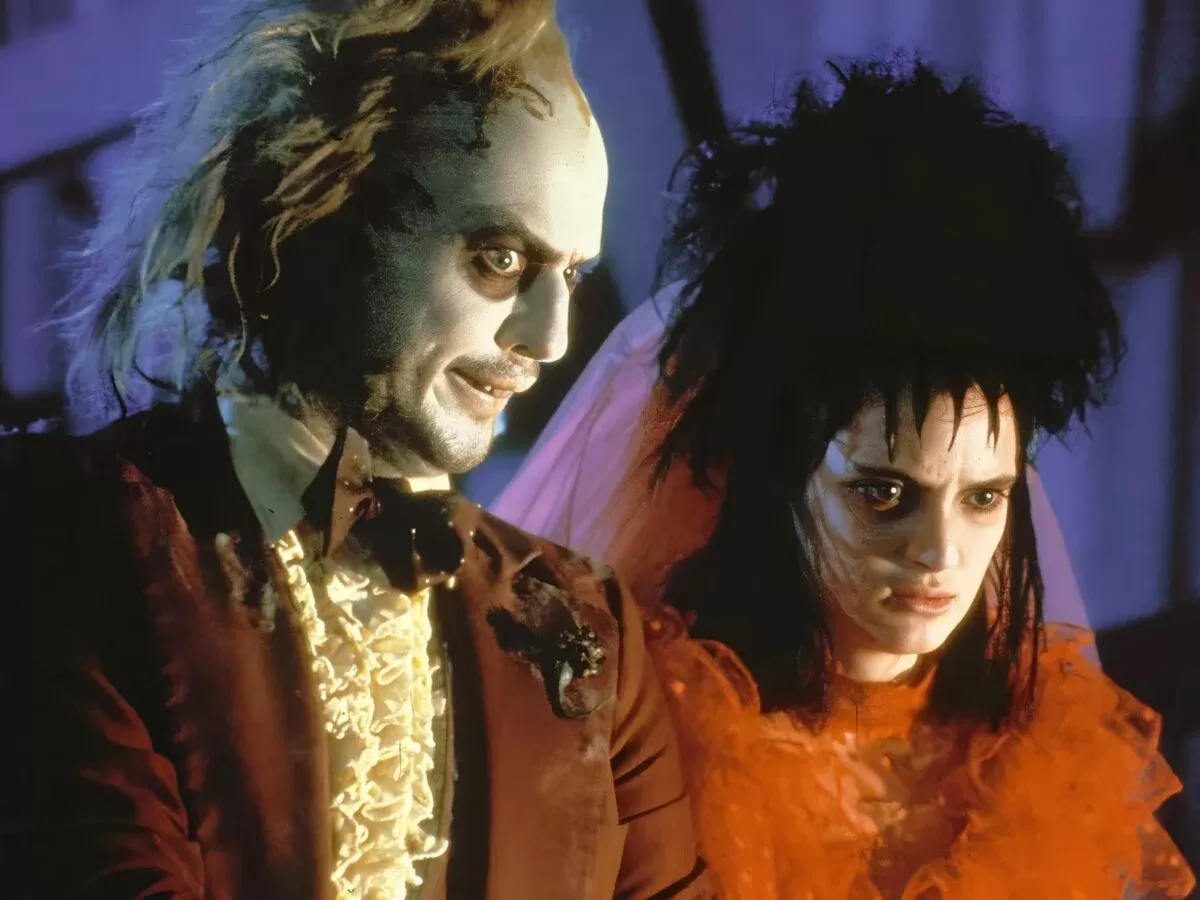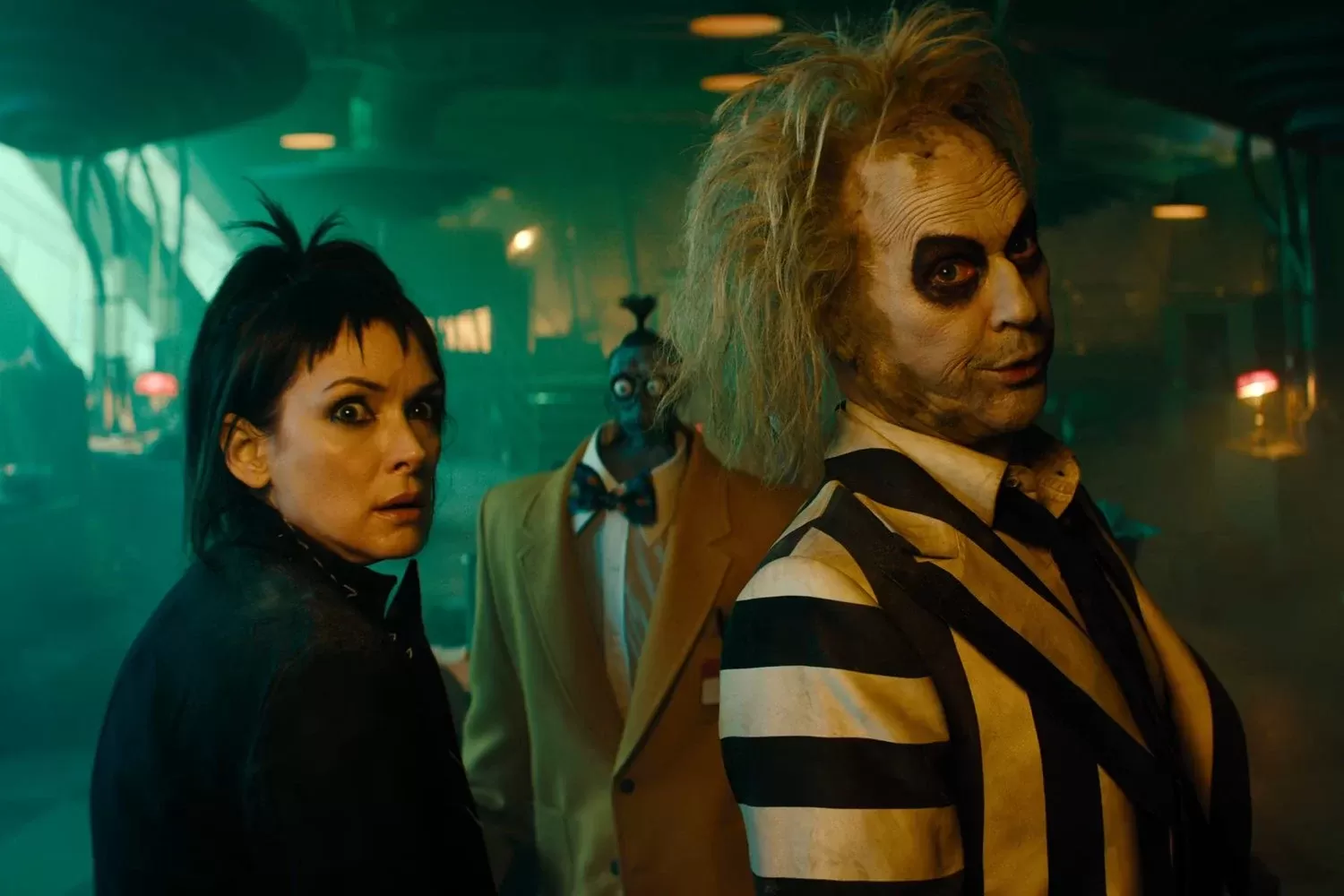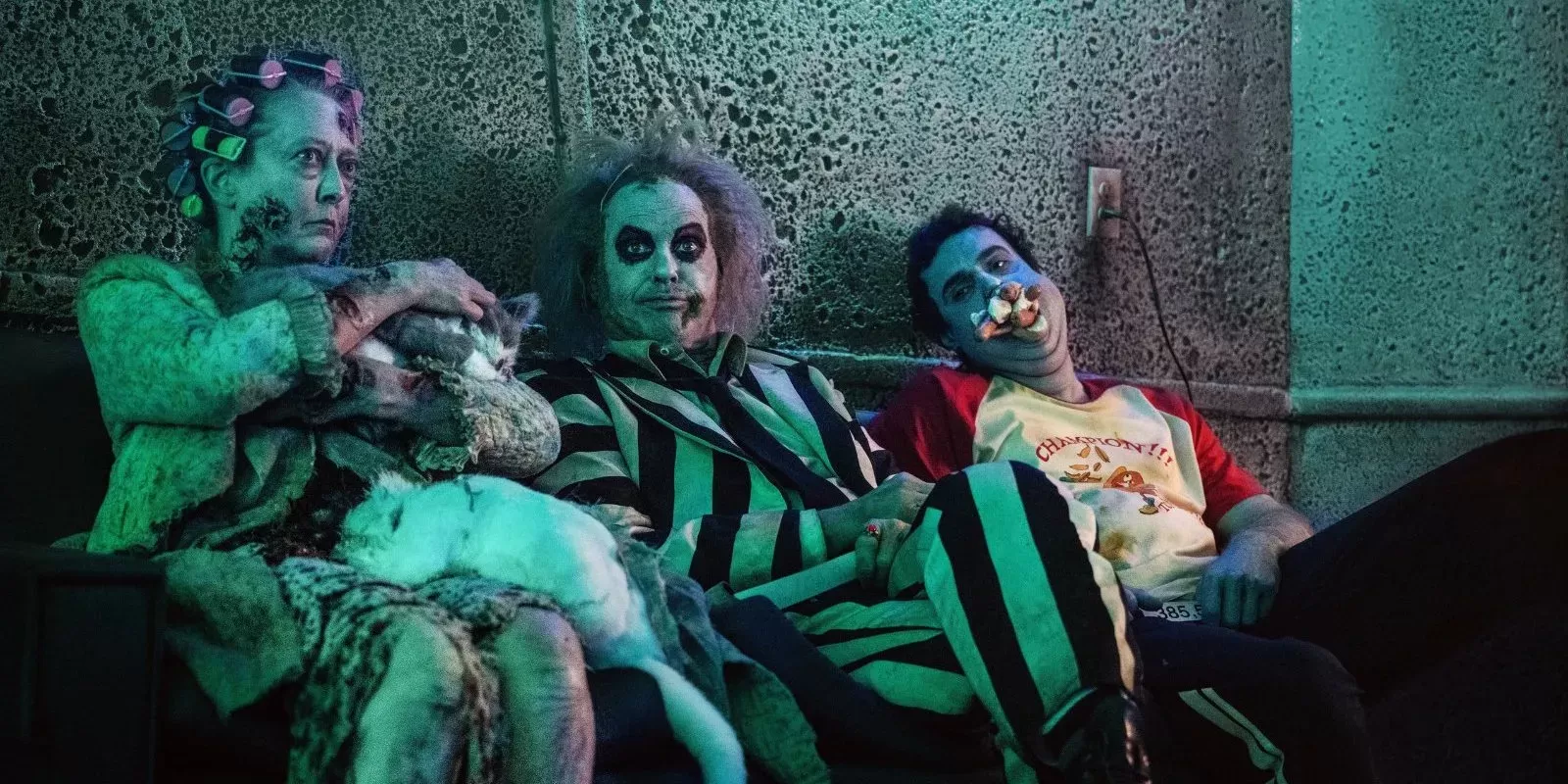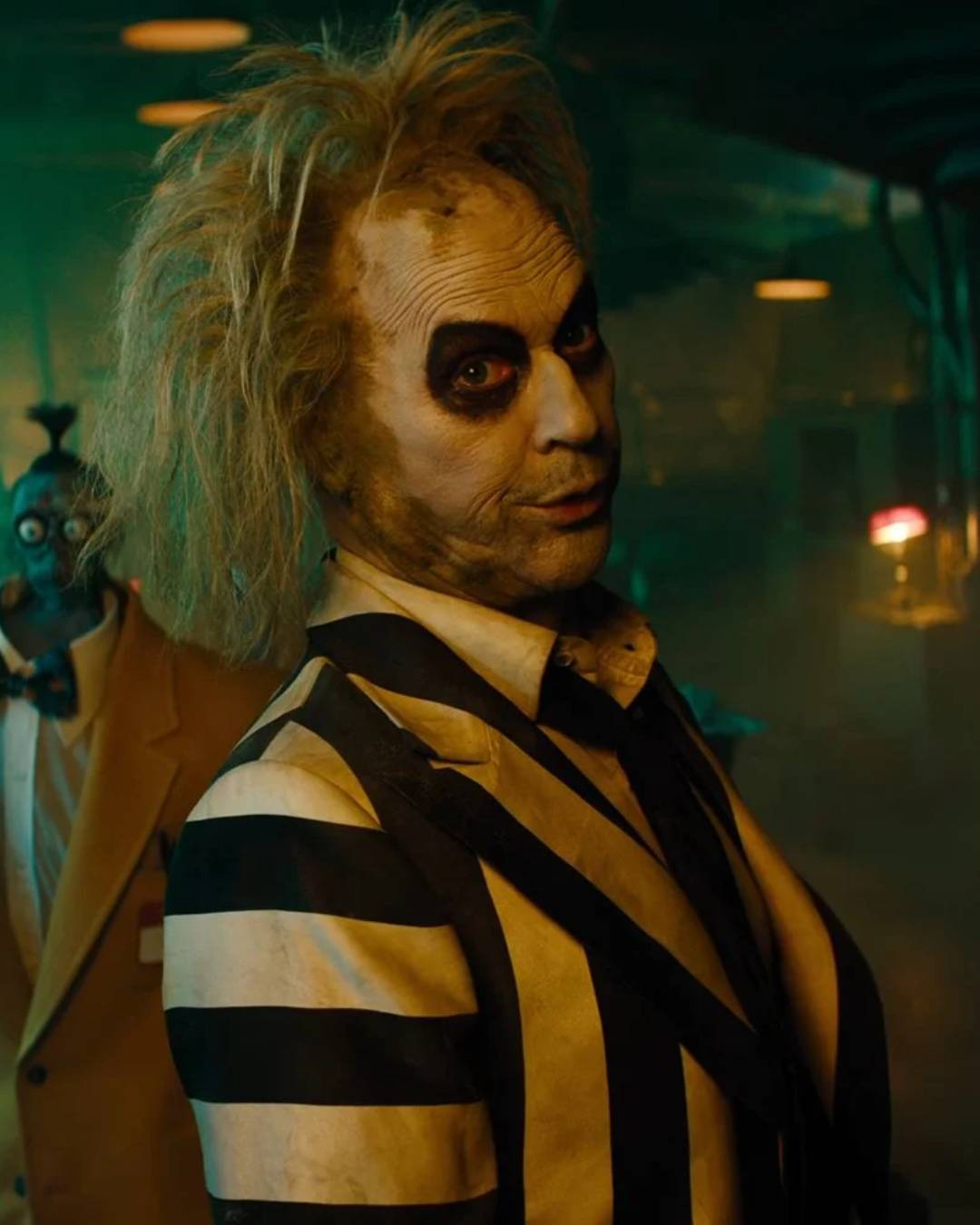
Is the sequel to Beetlejuice the return of Tim Burton? His fans have been hoping for a return to his roots for years. And, perhaps, they finally got it
«I swear, afterlife is so random»: we can only agree with Jenna Ortega, especially when it comes to the afterlife of Tim Burton. The actress, a standout for the father of Edward Scissorhands and Big Fish, his chosen protagonist for Netflix’s Wednesday, along with the director of the bizarre par excellence, opens the 81st Venice Film Festival, becoming part of an unexpected comeback. A macabre yet hilarious festivity that reunites Winona Ryder, Michael Keaton and Catherine O’Hara for the out-of-competition sequel Beetlejuice Beetlejuice, a return thirty-six years after the cinema debut of the story that erased the boundary between the world of the living and the world of the dead, released in theaters in 1988 and starring Alec Baldwin and Geena Davis.
That Burton needed to return to something familiar was clear. Some rather unhappy past experiences (Miss Peregrine’s Home for Peculiar Children, Dumbo) had already pushed him towards something more akin to his imagination, although even the series on the eldest daughter of the Addams family was an evident compromise between maintaining his identity and a purely commercial product. The old filmmaker of Sweeney Todd: The Demon Barber of Fleet Street had become, for years now, a shadow of himself, at the peak of his fading precisely when, one might say finally, he had managed to enter through the front door of the Disney mansion, where everything began in his much-dismissed beginnings at eighteen for the Mickey Mouse factory. After the CGI pink elephants of the live-action Dumbo, however, the need for the author and his fans to delve back into his origins was more than justified, pushing Burton to revisit the idea of making a sequel, the one most requested as a continuation of his filmography, in which the toughest to convince was the "ghost with the most" Keaton.
The performer of Batman and Spotlight, as well as the quintessential Beetlejuice, had only one request: that the new film be up to the standard of the handcrafted effects that distinguished the fantasy of the first. Only then could it exist. The desire was for Tim Burton not to exploit digital prowess - he who, regardless of the more or less modest results, is everything that is farthest from the era of computers and smartphones (so much so that there is even a sequence in the film about this) - to return to a remnant of imaginative work that was authentic, manual, tangible. And, with all due lightness, that’s what the sequel achieved. With Beetlejuice Beetlejuice, Burton, with a script by Alfred Gough and Miles Millar, once again catapults us into the town of Winter River, bringing us back to the hill where the multi-story white house (now covered by a black shroud) of the Deetz family stands. Lydia, Ryder’s seventeen-year-old turned mother and professional medium, has a TV show about haunted houses and must face the strange presence of Keaton’s demon, back in action.
These tasks make her even more neurotic in the eyes of her daughter Astrid (Ortega), who doesn’t believe in her mother’s power and also has to accept the woman’s imminent marriage to the unpleasant manager Rory (Justin Theroux). Interferences from the afterlife, however, could derail everything, even requiring the help of the unmentionable Beetlejuice, himself pursued by his vengeful ex-wife Delores (Monica Bellucci). She is, among other things, the star of the “stitching” sequence to the tune of the Bee Gees’ Tragedy, which is the highest point of Burtonian cinema seen in a long time, echoing two of his best heroines, Sally from The Nightmare Before Christmas and Emily from Corpse Bride.
So there’s plenty of material in Beetlejuice Beetlejuice. At the risk that, at some points, it’s even too much. In short, we have: a Monica Bellucci/Dolores swirling in the afterlife, Beetlejuice wanting to get back to the land of the living, Winona Ryder popping pills to make her existence with spirits less harsh, and Astrid/Jenna Ortega getting caught up in a creepy love story. Yet, in Tim Burton’s hell of sandworms and endless waiting rooms, the director invites us to take a ticket, sit down, and enjoy the time we have to spend in the realm of the dead. A universe that, while not as equally eccentric or overflowing as the ‘80s cult classic, dares to experiment with large-scale scenes or detailed characters, bringing back what has long been missing from the filmmaker’s core: personality.
And personality means using ingenuity. Like in explaining the protagonist’s relationship with his former spouse, where Beetlejuice embarks on a long black-and-white flashback for which Burton chooses Italian as the language to retrace the love story between the man and the woman (one of many homages to Italian cinema, like his open citation of Mario Bava’s Kill, Baby... Kill!), while for the finale, he reserves us a long musical scene in which the characters float in the air as if they were in La La Land (“I love dream sequences”, Michael Keaton’s protagonist confesses to the audience, breaking the fourth wall). And, immediately, but always ready on standby, there’s the head of the department against afterlife crimes, with his ever-hot coffee in hand, Wolf Jackson, an actor who, even as a deceased, retains the role that made him iconic among the living, played with irony and a hefty dose of comedy by a fun and amused Willem Dafoe.
«It must be real» is Wolf Jackson’s favorite quote. And, given the conviction he puts into his words and the fact that such a subtle and clownish exchange between afterlife and real life can never be real, the phrase seems more like an encouragement from Tim Burton to Tim Burton himself to fill and let the necessary enthusiasm shine through Beetlejuice Beetlejuice. To fuel an engagement that the film demands with every shot, every horror invention, and every nonsense or absurdity encountered. Fantasizing can be real, especially if from Michael Keaton to Winona Ryder, from a splendid Catherine O’Hara to a now firmly entrenched face in Burton’s imagination like Jenna Ortega, everyone gives their all to bring back a touch of the past’s naiveté, with a sprinkle of novelty.
And if a Halloween costume of “irreversible mortgage” can give you chills, and perhaps makes us understand a bit more why the director agreed to compromise himself for majors like Disney or Netflix, to Delia/O’Hara’s question to Lydia/Ryder, «Where did that dark little girl who used to torment me go?» we can try to answer, but directing it to Tim Burton instead. A director who, even though he had lost his way, at least for Beetlejuice Beetlejuice seems to have returned. You can sense the joy of a liberated filmmaking as in the beginning (the first Beetlejuice was his second feature film), a child happy to play with improbable, strange universes full of friends who certainly










































